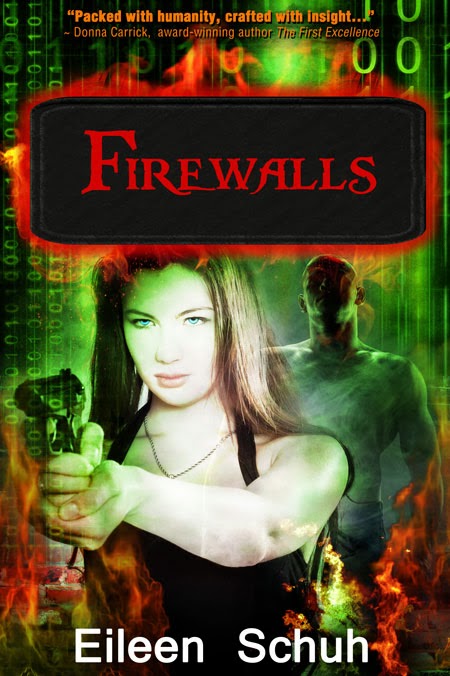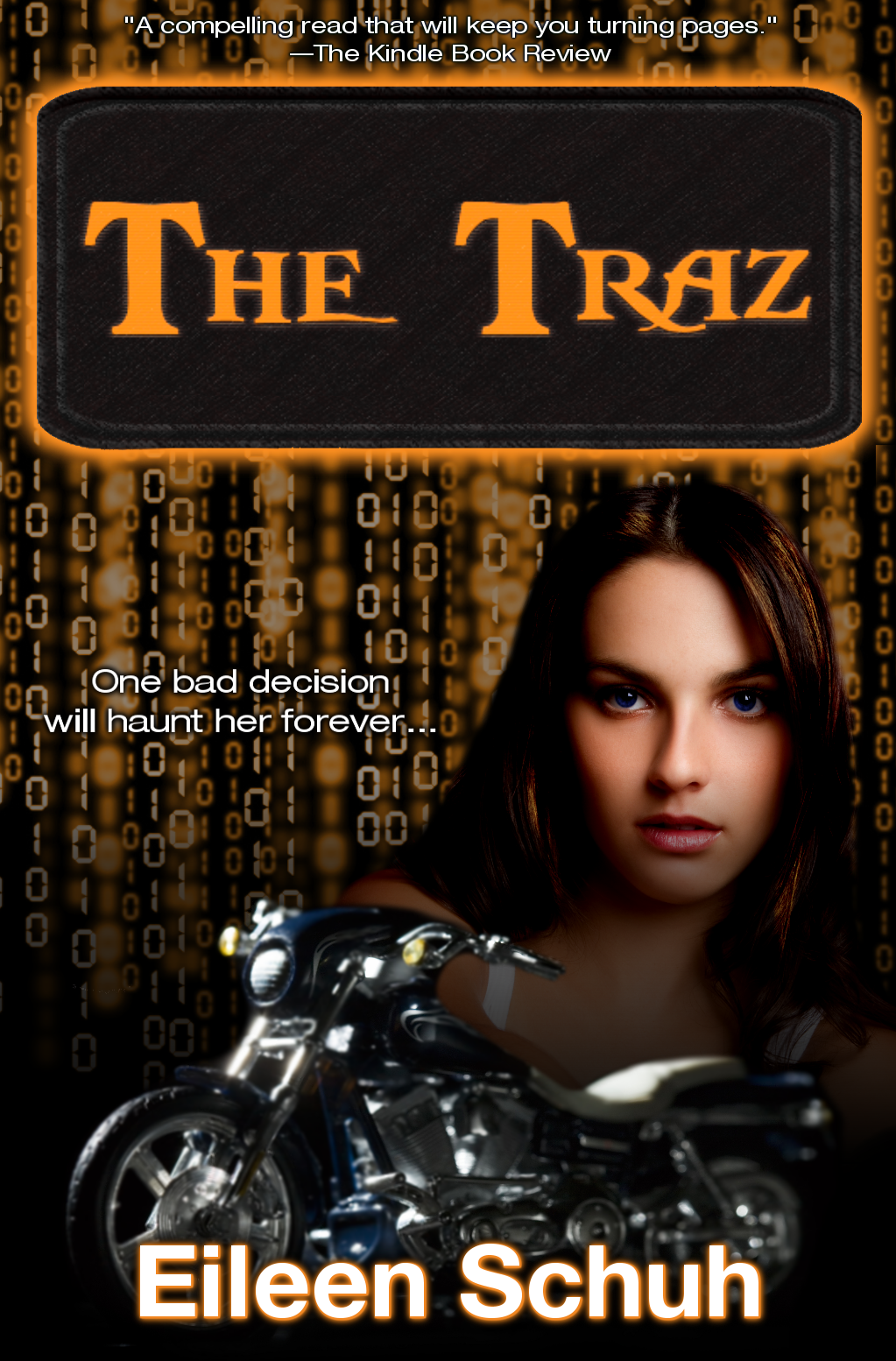In fact, I don't think the disorder was even mentioned by name in my new release FIREWALLS until the final few edits. In fact, the novel was written years ago--when PTSD was still a whisper.
I set out to write a novel about a young woman whose violent childhood has scarred her. About her struggle with the past, the pain of the past, her inability to embrace her future. I believed my story to be about young Cst. Katrina Randal who is struggling to fulfill her dream of following her deceased father's footsteps into a law-enforcement career...and failing miserably because she's totally focusing on her past.
The first three-quarters of FIREWALLS is about Katrina's inability to accept the help that's being offered. She is angry and hurting and wants to stay that way. It seems unfathonable to her that she should laugh, or love, or achieve success while her brutally-murdered friend lies rotting in his grave. She wants justice, wants to assauge her guilt, wants...she doesn't know what she wants but she does know that she doesn't want to let go of the pain.
My story was to show the importance of relationships in her healing--how without her friends and co-workers standing with her, beside her, patiently waiting for her to heal, beckoning her into a brighter future--how without them, she'd have succumbed to the darkness.
Yes, there was professional help, but as Katrina herself noted, her psychiatrist could not cry with her (or for her), could not wrap her in his arms, could not be there at night for her when the nightmares visited--all the things she needed from someone to get to the other side of her personal hell.
That's what FIREWALLS was about...until I started editing. "That's not credible," I thought to myself as her boss, Sgt. Kindle, once more put up with her dangerous behaviour, once more forgave her insubordination. "She's armed. She has a badge. She can't be allowed to do things like that."
About then, however, the PTSD headlines began climbing up the news ladders. That's when lawsuits against the RCMP were launched, when military suicides gained ink, when people began speaking out. That's when I realized why Sgt. Kindle did what he did.
Yes, to some extent he was making up for the fact that it was him in charge of the police operation that saw Katrina and his undercover officer, Shrug, experienced their trauma. He likely felt a personal debt to his two officers that had sacrificed their sanity for his operation. He likely felt the Alberta Police Force owed them, too. But more than that.
He seemed to know that letting these two wounded officers keep the jobs that were so important to their dreams, to their confidence, to their sense of self, was vital to their recovery. He saw the potential greatness in Katrina and Shrug. He knew they could contribute to their communities in a big way, should they overcome their emotional turmoil. He knew that by him accepting their behaviours he'd get in trouble with his superiors...and the media, but he did so anyways...so that his officers could recover.
With that realization, I decided I needed to officially diagnose my characters with PTSD. I needed to splash the name of that disorder throughout the pages and onto the back cover, so my readers could better understand not only PTSD but the officers that were in its clutches. They needed to be aware that it was PTSD causing my characters to 'act out of character' and that their illness merited the leniency of Sgt. Kindle and merited their leniency, too.
PTSD is easiest to treat immediately following the trauma, but that is not always possible, such as in cases of unreported child abuse or out on the battlefield, or during uncover operations. PTSD does not necessarily have as dramatic an origin as Katrina's and Shrug's--few of us will ever witness a gang slaying. And unlike Shrug and Katrina, many PTSD sufferers harbor no guilt or sense of responsibility for the horrors that life handed them. The diagnosis of Post Traumatic Stress Disorder covers a vast array of circumstances, treatments vary, and individuals respond in their own ways to both the trauma and the treatment.
However, when a book club member told me she's been treated for PTSD and FIREWALLS was credible to her and enlightening, I realized my new release truly is more than just a story about an awesome crime-fighting lady with a painful past.
For more information about this novel check my press release.
FIREWALLS--special New Release limited-time price of $1.99. Paperback only $15.00. (Retail prices may vary.) Available in all popular eFormats from most online booksellers. Smashwords sells ebooks in a variety of formats--for your tablets, phones, eReaders and computers. Use Smashwords coupon code at check out to get the special price.
Click here to purchase or sample from Amazon eBook or paperback
Click here to purchase or sample from Smashwords eBook in various formats Use coupon code DP29T at check out to get for half-price.
"Packed with humanity, crafted with insight."
"Schuh has created a character worthy of being called a hero."
"A
tale of comfort and hope that we, too, can slay our own dragons."
"A gritty, fast paced thriller"
FIREWALLS is Book III in the BackTracker Series. Book I THE TRAZ as well as THE TRAZ School Edition (with teaching guide) are also on sale for a few more days for only 99₵
£0.77
Purchase THE TRAZ on Smashwords - Use
Code: UX54T at checkout to get for 99₵
Also available in paperback





